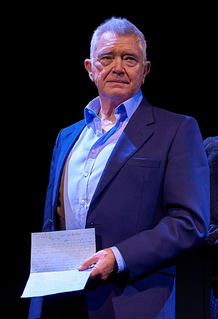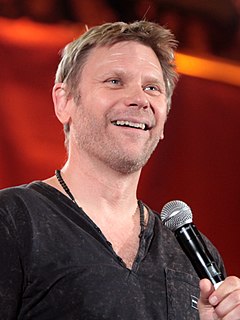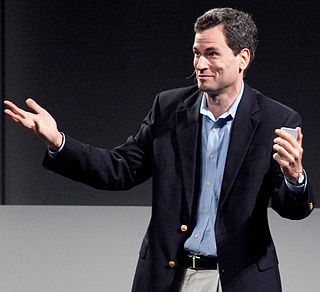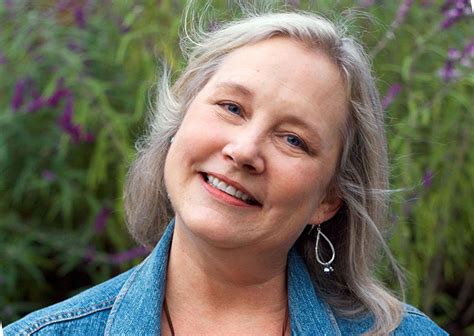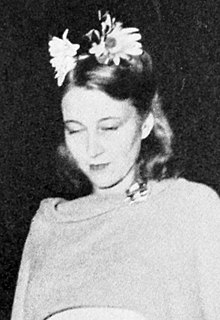A Quote by David Quammen
Most Americans know nothing about the African forest, and it seems to them a very scary, spooky dangerous place. I've spent a lot of time in the forests of central Africa. I know they're beautiful places that contain a lot of different kinds of creatures, including some that carry Ebola.
Related Quotes
I don't like real places, but I don't like imagined ones either. I feel like I'm looking for some mixture and it's very hard for me to say because I like to use real place names because there's an uncanny feeling to them, but at the same time I don't ever really try to make them plausible. Sometimes I like to use them as a way to hide in plain sight a little bit, because to me a very exotic or imagined setting has a lot of weight and a lot of burden to it, and it doesn't suit me, but a real place seems to have its own weird legacy, so I don't know what the choice is?
We know that the African regimes, many African regimes have failed their people and many Africans want regime change, and there are a lot of African leaders who make promises but don't carry them out. I mean, the progress - I mean, it is noble for the rich countries to help Africa, but then the question is: What are African leaders themselves doing to help their own people?
I spent my youth and my most formative years in Africa. I left Africa when I was about 20, 21, and when Mo says a great African, I was really moulded by my African experience, although I had the good fortune that by the time I was 24 I had studied and worked on three continents - Africa, the US, and Europe.
I don't know very much about, honestly, about the Middle East, and yet I've played a lot of different people from a lot of different cultures. The thing that I notice is that we're all - there is a core of humanity that travels right through every culture. And, after all, we're all from Africa originally.
I saw a ghost when I was staying at Dartington Hall in Devon in the 1960s. I think there are many different kinds of entities, some are scary and some aren't, it depends on the state of mind you're in when you are confronted. I found that quite scary because it appeared when I was asleep, so it was quite a shock, but the other ones I've encountered, I didn't find scary. I have a lot more understanding of them.
Africa is a very special place, the people are very special there. There is a lot of love, and a lot warmth and a lot of light that is there. I think that if we aren't careful with places like Africa, in terms of the way that we set up our way of living, which now I think that most of the world operates on. If we don't focus on the steps towards creating a more peaceful structure right now, we could possibly wipe out full nations, cultures and species as as we have in the past.
With a novel, you have the reader with you a lot longer, and you owe him a lot more. Obviously you have to have a plot - I say "obviously," although I think a lot of fiction doesn't, and nothing seems to happen. But to me, there should be something that happens, and it should be at least vaguely plausible. And because the readers are going to be with these characters for a long time, you have to get to know them and like them and want to know what happens to them.
I've spent most of my life in L.A. and I'm still amazed at things that I don't know about the place. There are a lot of places I've never been to yet and I may never even make it. There's so much here and there's so much of a variety in terms of culture now. It's amazing. It's all here in one big city. In a lot of ways, the city is unique in the world because it's hard to find another city that has the diversity and range. It's a microcosmic planet, if you look at it that way. And in that sense, it's very much an experimental city.
My sense is that the most under-appreciated-and perhaps most under-researched-linkages between forests and food security are the roles that forest-based ecosystem services play in underpinning sustainable agricultural production. Forests regulate hydrological services including the quantity, quality, and timing of water available for irrigation. Forest-based bats and bees pollinate crops. Forests mitigate impacts of climate change and extreme weather events at the landscape scale.
Long before the technology revolution there was declassification of documents and I've spent quite a lot of time studying declassified internal documents and written a lot about them. In fact, anybody who's worked through the declassified record can see very clearly that the reason for classification is very rarely to protect the state or the society from enemies. Most of the time it is to protect the state from its citizens, so they don't know what the government is doing.







